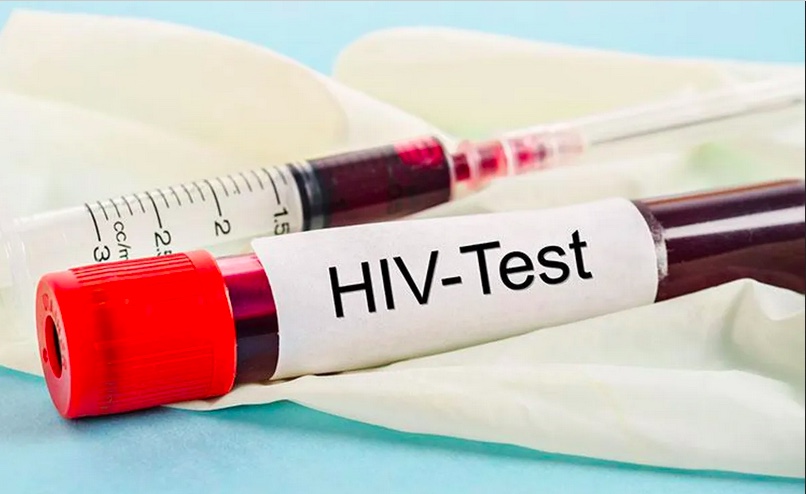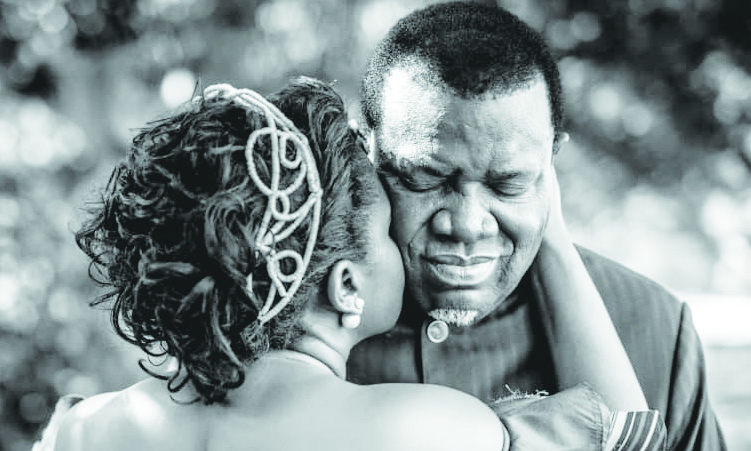ALLOW me to respond to a recent article titled ‘Imagining the South’ which was published in a local English daily by a certain Mr Alexactus T. Kaure.
While the National Planning Commission (NPC) appreciates and respects Mr Kaure’s opinion and expression on the poverty situation of the people in the South in general and Karas Region in particular, some of the issues and questions raised need to be put into perspective. This reaction will attempt to do just that.In paragraph three of his article, Mr Kaure tries to draw the attention of readers to a recent poverty assessment by the National Planning Commission in Karas Region.”These studies”, according to Mr Kaure, “are carried out annually in all regions”.While it is true that the studies covered all 13 political regions, it is not true that they are carried out annually.The study referred to above was the first of its kind to be conducted in Namibia.Yes, NPC has conducted several studies.None of those conducted has been on annual basis except for the Annual Agriculture Surveys.For instance after the Population and Housing Census was carried out in 1991, the next census was only again carried out ten years later (2001).Similarly, the first Namibia Household Income and Expenditure Survey (NHIES) was conducted in 1993/1994, the next one was only carried out 10 years later (2003/2004).Currently, NPC is planning for the next Population and Housing Census for 2011 and next National Housing Income and Expenditure Survey for 2008/2009.These are not annual, unless Mr Kaure is referring to studies we might not be aware of.All the referred above stated studies were of quantitative nature and the poverty assessment study in question was a qualitative one.By their design and approach, Participatory Poverty Assessments (PPAs) are subjective and most importantly, participatory.The selection of sites to be assessed is discussed and agreed upon by the leadership of the region (administrative, political and traditional).The themes to be focused on, as well as the teams to facilitate the fieldwork, were all agreed to with leaders of the region.In addition, semi-structured interviews were conducted with key informants to verify and clarify some of the issues raised by the communities.All issues raised by the communities and the key informants were subjected to further scrutiny and verification by a broader audience in the form of a Regional Poverty Forum.The Forum was attended by the Regional Governor as Chairperson, Regional Councillors, key informants, service providers and the participating communities.It was only after all participants to the Poverty Forum reached consensus on the findings that the Profiles were finalised.Once printed, the respective regions were provided with copies, at least two weeks in advance before the documents were officially launched on a date and venue of their choice.The same groups that participated in the Forums normally form part of the official launching.Again in paragraph 3, the author of the article referred to the issues of “laziness” as one of the main contributing factors why the Karas Region and by extension the South is poor.Here again Mr Kaure missed the point about the process of participatory poverty assessments and how the issue of laziness came about in the Report.Participatory Poverty Assessments (PPAs) by their nature are supposed to bring out the voices, insights, and concerns of poor people.Such voices which are qualitative should help to inform pro-poor policies.It is also the purpose of the PPAs to provide information about the perceptions and attitudes of the poor.On the issue of laziness as one of the economic cause of poverty, NPCS has the following to say: The views and perceptions expressed in all the thirteen Regional Poverty Profiles are of the community members in their respective region.For Karas Region in particular, these are communities from Aussenkehr, Aroab, Luederitz, Tseiblaagte, Gabis and Pfalz.In trying to identify the real causes and effects of poverty within their respective communities, all communities are seeing unemployment as major cause of poverty in the region.The issue of “laziness” among the Nama ethnic group came up as a way of communities trying to explain why so many of them are unemployed.Other issues were raised like nepotism, lack of work ethics, lack of training opportunities, unwillingness of employers to employ young and inexperienced young people, ineffective leaders, among others.Alcohol abuse, theft, too many children, prostitution, loss of spouses, negative attitudes, water shortages, inadequate housing, drought and floods were also mentioned as causes of poverty in the region.Beside the fact, the community themselves were trying to identify the issues causing poverty in their communities so that they can be able to develop realistic interventions to these problems.It is surprising that Mr Kaure only decided to pick one word “laziness” without putting it into perspective.Interestingly enough, Mr Kaure is concerned about the “stereotyping of one specific group or community”.Given that the issue raised came from the communities themselves.It will be advisable for the author to read all the 13 Regional Poverty Profiles since laziness was cited as a cause of poverty by most communities in other regions.Therefore, this challenge is not unique to Karas Region.I, therefore, would like to refer Mr.Kaure and other interested readers to the following Regional Poverty Profiles; The Omaheke Regional Poverty (page 54) Hardap Regional Poverty Profile (page 45) Oshana Regional Poverty Profile (page 30) Oshikoto Regional Poverty Profile (page 57) Khomas Regional Poverty Profile (page 46) Kavango Regional Poverty Profile (page 46) Caprivi Regional Poverty Profile (page 53) and Erongo Regional Poverty Profile (page 37) On all these pages of the respective Regional Profiles, laziness was identified among many contributing factor to unemployment as a cause of poverty.In terms of his interest in empirical aspects of the study, I think it is sufficient to say the study was qualitative, and, therefore, reflect subjective perceptions of community members.The very reason why we decided to conduct Participatory Poverty Assessments was to enable the communities to conduct their own investigations, have their own knowledge, plan for poverty reduction and own the outcome.We strongly believe that this approach would help prevent the design of “one size fits all” poverty reduction strategies for different regions or population groups.We “took the pens away from the Mr Kaures and gave them to community members” to depict their own situations and interventions, an action that is in line with Namibia’s Decentralisation Policy.In paragraph six of his article, Mr Kaure has the audacity to tell the people of the South “to keep their feet firmly on the ground and understand their problems from much broader historical and political perspective than what the NPC is trying to make them believe”.Through the Regional Poverty Profiles of the Southern Regions (Karas and Hardap), people of the South have clearly demonstrated that they understand their problems and they are clear on interventions which can help them solve their problems, which was the purpose of the exercise.Since the other issues raised in the article have little or no bearing on the poverty profile in question, NPC would like to conclude by reiterating the fact that the issues in all Regional Poverty Profiles came from the identified communities in their respective regions.The Participatory Poverty Assessment approach is not only unique to Namibia.It has been conducted in Tanzania, Uganda, Rwanda, India and Vietnam, just to mention few.It is a universally accepted way of information gathering for formulation of targeted pro-poor interventions and thereby improving quality of poverty reduction strategies.Mocks Shivute Permanent Secretary National Planning CommissionThis reaction will attempt to do just that.In paragraph three of his article, Mr Kaure tries to draw the attention of readers to a recent poverty assessment by the National Planning Comm
ission in Karas Region.”These studies”, according to Mr Kaure, “are carried out annually in all regions”.While it is true that the studies covered all 13 political regions, it is not true that they are carried out annually.The study referred to above was the first of its kind to be conducted in Namibia.Yes, NPC has conducted several studies.None of those conducted has been on annual basis except for the Annual Agriculture Surveys.For instance after the Population and Housing Census was carried out in 1991, the next census was only again carried out ten years later (2001).Similarly, the first Namibia Household Income and Expenditure Survey (NHIES) was conducted in 1993/1994, the next one was only carried out 10 years later (2003/2004).Currently, NPC is planning for the next Population and Housing Census for 2011 and next National Housing Income and Expenditure Survey for 2008/2009.These are not annual, unless Mr Kaure is referring to studies we might not be aware of.All the referred above stated studies were of quantitative nature and the poverty assessment study in question was a qualitative one.By their design and approach, Participatory Poverty Assessments (PPAs) are subjective and most importantly, participatory.The selection of sites to be assessed is discussed and agreed upon by the leadership of the region (administrative, political and traditional).The themes to be focused on, as well as the teams to facilitate the fieldwork, were all agreed to with leaders of the region.In addition, semi-structured interviews were conducted with key informants to verify and clarify some of the issues raised by the communities.All issues raised by the communities and the key informants were subjected to further scrutiny and verification by a broader audience in the form of a Regional Poverty Forum.The Forum was attended by the Regional Governor as Chairperson, Regional Councillors, key informants, service providers and the participating communities.It was only after all participants to the Poverty Forum reached consensus on the findings that the Profiles were finalised.Once printed, the respective regions were provided with copies, at least two weeks in advance before the documents were officially launched on a date and venue of their choice.The same groups that participated in the Forums normally form part of the official launching.Again in paragraph 3, the author of the article referred to the issues of “laziness” as one of the main contributing factors why the Karas Region and by extension the South is poor.Here again Mr Kaure missed the point about the process of participatory poverty assessments and how the issue of laziness came about in the Report.Participatory Poverty Assessments (PPAs) by their nature are supposed to bring out the voices, insights, and concerns of poor people.Such voices which are qualitative should help to inform pro-poor policies.It is also the purpose of the PPAs to provide information about the perceptions and attitudes of the poor.On the issue of laziness as one of the economic cause of poverty, NPCS has the following to say: The views and perceptions expressed in all the thirteen Regional Poverty Profiles are of the community members in their respective region.For Karas Region in particular, these are communities from Aussenkehr, Aroab, Luederitz, Tseiblaagte, Gabis and Pfalz.In trying to identify the real causes and effects of poverty within their respective communities, all communities are seeing unemployment as major cause of poverty in the region.The issue of “laziness” among the Nama ethnic group came up as a way of communities trying to explain why so many of them are unemployed.Other issues were raised like nepotism, lack of work ethics, lack of training opportunities, unwillingness of employers to employ young and inexperienced young people, ineffective leaders, among others.Alcohol abuse, theft, too many children, prostitution, loss of spouses, negative attitudes, water shortages, inadequate housing, drought and floods were also mentioned as causes of poverty in the region.Beside the fact, the community themselves were trying to identify the issues causing poverty in their communities so that they can be able to develop realistic interventions to these problems.It is surprising that Mr Kaure only decided to pick one word “laziness” without putting it into perspective.Interestingly enough, Mr Kaure is concerned about the “stereotyping of one specific group or community”.Given that the issue raised came from the communities themselves.It will be advisable for the author to read all the 13 Regional Poverty Profiles since laziness was cited as a cause of poverty by most communities in other regions.Therefore, this challenge is not unique to Karas Region.I, therefore, would like to refer Mr.Kaure and other interested readers to the following Regional Poverty Profiles; The Omaheke Regional Poverty (page 54) Hardap Regional Poverty Profile (page 45) Oshana Regional Poverty Profile (page 30) Oshikoto Regional Poverty Profile (page 57) Khomas Regional Poverty Profile (page 46) Kavango Regional Poverty Profile (page 46) Caprivi Regional Poverty Profile (page 53) and Erongo Regional Poverty Profile (page 37) On all these pages of the respective Regional Profiles, laziness was identified among many contributing factor to unemployment as a cause of poverty.In terms of his interest in empirical aspects of the study, I think it is sufficient to say the study was qualitative, and, therefore, reflect subjective perceptions of community members.The very reason why we decided to conduct Participatory Poverty Assessments was to enable the communities to conduct their own investigations, have their own knowledge, plan for poverty reduction and own the outcome.We strongly believe that this approach would help prevent the design of “one size fits all” poverty reduction strategies for different regions or population groups.We “took the pens away from the Mr Kaures and gave them to community members” to depict their own situations and interventions, an action that is in line with Namibia’s Decentralisation Policy.In paragraph six of his article, Mr Kaure has the audacity to tell the people of the South “to keep their feet firmly on the ground and understand their problems from much broader historical and political perspective than what the NPC is trying to make them believe”.Through the Regional Poverty Profiles of the Southern Regions (Karas and Hardap), people of the South have clearly demonstrated that they understand their problems and they are clear on interventions which can help them solve their problems, which was the purpose of the exercise.Since the other issues raised in the article have little or no bearing on the poverty profile in question, NPC would like to conclude by reiterating the fact that the issues in all Regional Poverty Profiles came from the identified communities in their respective regions.The Participatory Poverty Assessment approach is not only unique to Namibia.It has been conducted in Tanzania, Uganda, Rwanda, India and Vietnam, just to mention few.It is a universally accepted way of information gathering for formulation of targeted pro-poor interventions and thereby improving quality of poverty reduction strategies.Mocks Shivute Permanent Secretary National Planning Commission
Stay informed with The Namibian – your source for credible journalism. Get in-depth reporting and opinions for
only N$85 a month. Invest in journalism, invest in democracy –
Subscribe Now!






